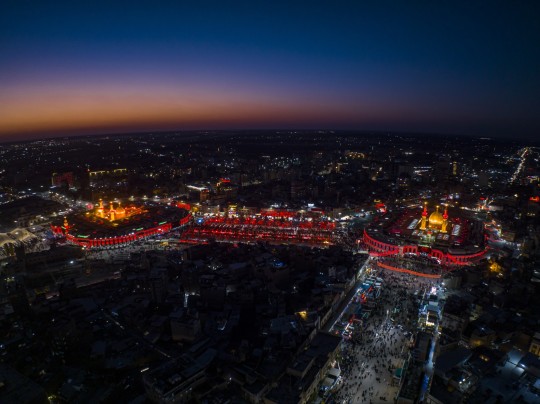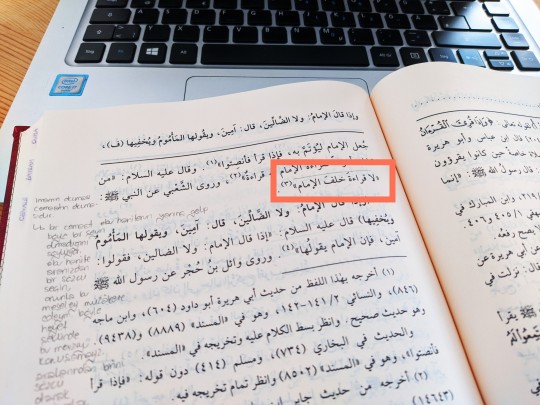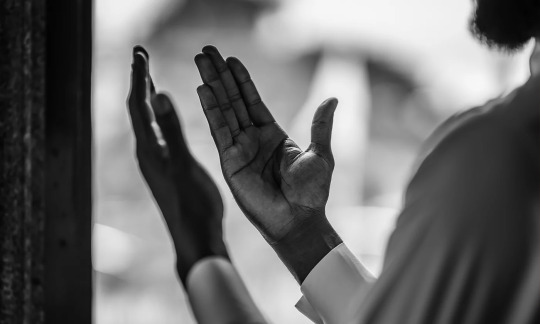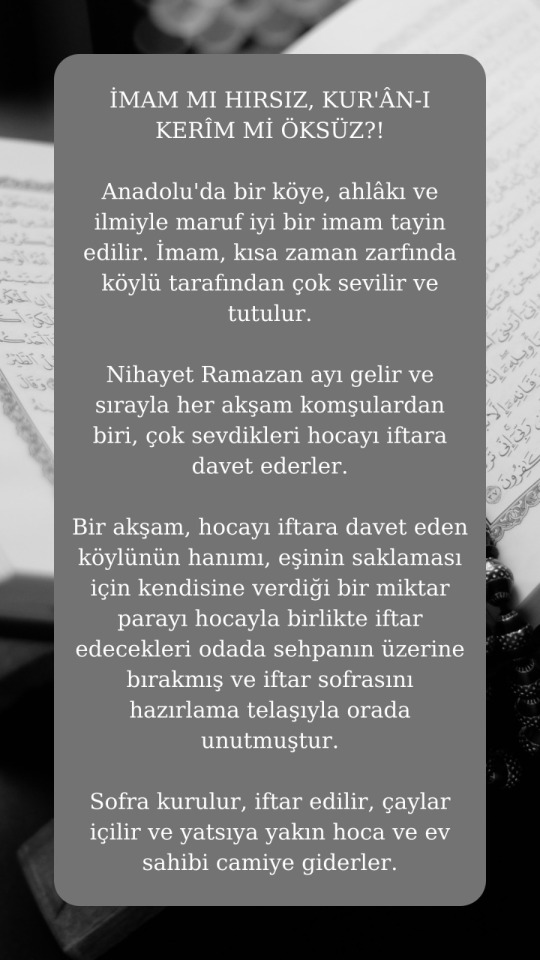#Imam
Text

Tam iman etmiş olabilmen için;
Yeryüzünde Allah'tan gayrı hiçbir şeyden korkmayacak,
O'ndan başka hiçbir kimseden bir şey beklemeyeceksin!
Bazul Eşheb Abdulkadir Geylani Hazretleri
20 notes
·
View notes
Text
Qanta Ahmed: "As a believing Muslim observing Islam, I am compelled by the Quran to support Israel’s sole claim to the Holy Land; the Quran says it is so."
"The 80,000-word document 1.6 billion Muslims accept as the revealed word of God, the Quran, is categorical about the destiny of Israel and the people who can claim its ownership."
The Quran states: “Moses said to his people: O my people! Remember the bounty of God upon you when He bestowed prophets upon you, and made you kings and gave you that which had not been given to anyone before you amongst the nations. O my people! Enter the Holy Land which God has written for you, and do not turn tail, otherwise you will be losers.”
"Nowhere does the Quran make mention of the Muslims’ claim to the Holy Land. Instead, God reveals in the Quran that The Holy Land is designated for the followers of Moses. Because the Promised Land is theirs according to the Quran, only the followers of Moses may determine where their capital must lie."
"It is this Islamic truth that political Islamists vehemently deny."
"Those who masquerade as Muslims: Fast-forward 1,300 years to the 21sth Century and we find totalitarian Islamism – profoundly distinct from Islam – ensures a new anti-Semitism courses through the Muslim psyche."
Also, from Imam of Peace, Mohammad Tawhidi:
instagram
#secular-jew#israel#jewish#judaism#israeli#jerusalem#diaspora#secular jew#secularjew#islam#imam#mohammed Tawhidi#Tawhidi#Imam of peace#pro zionist imam#qanta ahmed#Instagram
23 notes
·
View notes
Photo

Skam (s04e02)
#mine#screens#skam#skam norway#norway#skam original#skam season 4#skam s4#imam#imam meskini#sana#sana bakkoush#skam ending#end
23 notes
·
View notes
Text

"imam"
image: the head and shoulders of a smiling person with brown skin and a black beard, wearing a white kufi and thobe
#communication symbol#communication image#aac symbol#aac image#aac emoji#custom emoji#imam#islam#people
11 notes
·
View notes
Text

الإمامُ الصّادقُ (عَلَيهِ الّسَلامُ) : العِزُّ أنْ تَذِلَّ للحقِّ إذا لَزِمَكَ
Imam al-Sadiq (a.s.) said, ‘Honour is that you humble yourself to the truth when you face it.’
—Bihar al-Anwar, v. 78, p. 228, no. 105
29 notes
·
View notes
Text

IMAM
www.beau-gar.tumblr.com
#imam#black man#black model#handsome#menswear#fashion#blackmalemodel#menswearfashion#manabouttown#magazine#summer 2023#male model#mensfashion#black models#men's fashion#parisian style#britishstyle#style#style blogger#street style#mens style#gq style#styleblogger#styleoftheday#style inspiration
21 notes
·
View notes
Text

Ebû Hanîfe Hazretleri'nin zekâsına bir örnek:
Efendimiz aleyhisselâtu vesselâm bir hadîs-i şerîfinde ''İmamın arkasında kıraat yoktur.'' diye buyuruyor. Yani imamla namaz kılan kişi, kıraat yapmaz.
Bunu o asırda duyan kişiler bu hükme muhâlefet etmek için Ebû Hanîfe Hazretleri'nin yanına geliyorlar. Böyle bir şeyin mümkün olamayacağını, imamın arkasında namaza duran kişinin de kıraat etmesi gerektiğini iddia ediyorlar. Ebû Hanîfe Hazretleri, ''Aranızdan birini sözcü seçin ki onunla bu konuyu münâzara edeyim. Heyet şeklinde bu mevzuyu konuşamayız.'' diyor.
Aralarında birini sözcü olarak seçince Ebû Hanîfe Hazretleri soruyor:
''Bu kişiye konuşunca size de konuşmuş olur muyum?''
''Evet.''
''Peki onu ikna edersem sizi de ikna etmiş olur muyum?''
''Evet.''
''İşte namazda imamın kıraati de bunun gibidir. İmam okuyunca, cemaatin de adına okumuş olur.''
163 notes
·
View notes
Text
Eşimin imam olarak atandığı yerdeki evimiz, inşallah🤍




3 notes
·
View notes
Text

Once Prophet Mūsā (ʿalayhi s-salām) had extremely severe stomach pain. He humbly asked Allāh for relief and Allāh Subḥānahu wa-taʿālā ordered him to consume so-and-so herb from a jungle.
Prophet Mūsā (ʿalayhi s-salām) consumed the herb and was immediately cured of the pain.
After some days, the same disease reoccurred so he consumed the same herb again. Contrary to his expectation, his pain became even more severe.
Mūsā (ʿalayhi s-salām) humbly asked the Almighty, "O Allāh Subḥānahu wa-taʿālā! What is the secret behind this? One medicine has two entirely different effects! When I consumed it the first time, it cured me but when I consumed it the second time, it intensified my pain!"
Allāh replied, "O Mūsā! You used the herb the first time with My command, but the second time you used it of your own accord. O Mūsā! Know that cure is in My name. Without My name everything in the world is a deadly poison, and My name is its cure."
— Tafsīr-e-Na'īmī
#Hazrat Musa#prophet#Alayhi assalam#sufi#islam#sufiworld#shaykh#scholar#sufi world#scholars#habib#love#sufism#imam
17 notes
·
View notes
Link

“Mufti Mohammad Farhan juggles numerous responsibilities at the Islamic Center of Long Island in New York. On a Friday afternoon, he finishes leading prayers and departs for a funeral at the mosque. Since the pandemic, however, he has taken on a new role: identifying those in the Muslim community who need mental health support and referring them to clinical experts and therapists.
Across the United States, Muslim attitudes toward mental illness are changing, as is the role of the mosque. Following the COVID-19 pandemic, Muslims have been more willing to engage in public conversations regarding mental health issues, including the taboo subject of suicide. Imams and religious leaders have responded to worsening mental health problems in a variety of ways, including by taking mental health training. Although limited, such training can be a first step toward imams becoming a crucial part of the solution to their community’s mental health needs.
“We are often the first responders to mental health crises, because there is a trust factor that was built over time, and because of the huge stigma within our community,” explains Mufti Farhan, a soft-spoken religious leader who grew up in New York...
Culturally Competent Care
Sarah Murad, a counselor at the Islamic Circle of North America’s humanitarian arm, has been providing culturally competent care to immigrant communities in Illinois, a state with the highest per-capita population of American Muslims in the U.S., many of whom are religious conservatives or recent immigrants. “By the time people come to seek our help, it is already too late because of the stigma [around mental health], so the first thing they ask for is a religious counselor,” Murad says. In such instances, she refers cases to Shaykh Omer Haqqani, who works at the Islamic Center of Wheaton and provides culturally relevant therapy and khutbahs, or sermons, about mental health across Illinois.
“Our faith tells us that it’s OK to be sad and express our emotions,” says Haqqani. He often cites the following story to those who seek his help: “When our prophet Muhammad (PBUH) lost his infant child—he was weeping, he was mourning, he was crying to the point where the companions came and asked him, ‘Even you, the prophet of God?’”...
For religious leaders, like Haqqani in Illinois and Farhan on Long Island, the shift toward seeking mental health care is happening at Islamic centers and mosques. Both men cite an expansion of the role Islamic centers play in the lives of community members. “For Muslims, one of the most important and effective venues to get information about mental health is at the mosque, and topics such as suicide and depression are now openly being addressed in khutbahs,” Haqqani shares...
Prevention, Not Reaction
[Dr. Rania] Awaad noticed how religious leaders tend to ask for intervention only after a crisis has occurred, and together with her team at Stanford University, she launched a campaign to train 500 Muslim leaders on suicide response.
Amara Kamara, a 53-year-old first-generation immigrant from Liberia, attended Awaad’s training in his capacity as a mental health advocate and administrator at Masjid Al-Ansar in Minnesota. He saw it as a “new experience” that allows him to “see how we can use community resources to have an open discussion about a difficult topic and tell the victims that it is OK to talk about it.”” -via Yes! Magazine, 12/28/22
#cw suicide#mental health#muslim#united states#muslim americans#imam#mental health treatment#culturally competent care#depression#mosque#good news#hope
28 notes
·
View notes
Text

Imam Al-Busiri Mosque in Alexandria, Egypt
French vintage postcard
#carte postale#old#ansichtskarte#busiri#egypt#photo#vintage#postkaart#photography#alexandria#mosque#briefkaart#postkarte#french#ephemera#postcard#sepia#postal#tarjeta#imam#al#imam al-busiri mosque#historic
7 notes
·
View notes
Text

Anyone who follows this ideology are about the dumbest people on the planet.
#israel#secular-jew#jewish#judaism#israeli#jerusalem#diaspora#secular jew#secularjew#islam#islamism#Islamist#islamic jihad#Hamas#sheikh#imam#propaganda#sexually repressed#dumbest
7 notes
·
View notes
Text
Follow The Texts, Not The Imam
(al-Shāfīʿī said): Kullu mā qultu (ie: for everything I say)
" كل ما قلت؛
Fakana ʿan nabi ﷺ khilafu qawlī mimma yaṣiḥḥu (ie: if there is something authentic from the Prophet ﷺ contrary to my saying)
فكان عن النبي صَلَّى اللَّهُ عَلَيْهِ وَسَلَّمَ خلاف قولي مما يصح؛
Fa-ḥadīthu ʿl-nabi ūlá (ie: then the ḥadīth of the Prophet ﷺ is given preference),
فحديث النبي أولى،
Falā tuqallidūnī (ie: so do not imitate or blindly follow me).
فلا تقلدوني ".
Ibn Abī Ḥātim (in al-Ādāb p. 93), Abū Nuʿaym, and Ibn ʿAsākir with a ṣaḥīḥ sanad.
ابن أبي حاتم (ص 93)، وأبو نعيم، وابن عساكر (15/9/2) بسند صحيح.
Muḥammad Nāṣir ʾl-Dīn al-Albānī, Aṣl Ṣifah Ṣalāh al-Nabī ṢallAllāhu ʿAlayhi Wa Sallam 1/31 #8
محمد ناصر الدين الألباني، أصل صفة صلاة النبي ١/٣١ #٨
https://shamela.ws/book/9875/30
@ilmtest [https://t.me/ilmtest]
#islam#islaam#islamic#islaamic#muslim#salafi#salafiyyah#salaf#taqleed#taqlid#imam#imaam#hadith#hadeeth
13 notes
·
View notes
Text
الإمامُ عليٌّ (عَلَيهِ الّسَلامُ): الصِّدقُ يُنجِيكَ وإن خِفتَهُ ، الكِذبُ يُردِيكَ وإن أمِنتَهُ
Imam Ali (a.s.) said, ‘Truthfulness saves you even though you fear it whereas lying ruins you even though you feel safe from it.’
—Ibid. nos. 1118-1119
12 notes
·
View notes
Text




''Bu dünya Kur’ân ile yaşıyor, âhiret Kur’ân ile kazanılıyor. Cemâlullâh da Kur’ân ile kazanılıyor. Kur’ân’a dönelim, ahlakımızı düzeltelim. Nefis güzel ahlaktan uzaktır.''
Mahmud Efendi Hazretleri (rahmetullâhi aleyh)
44 notes
·
View notes
